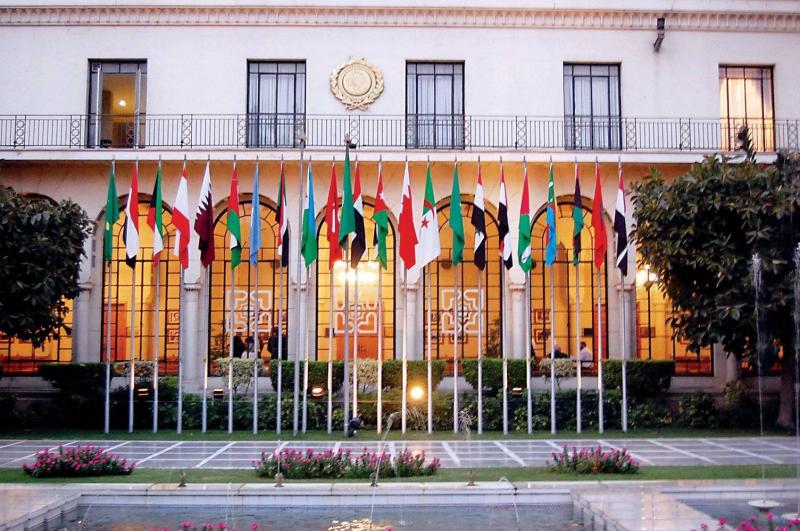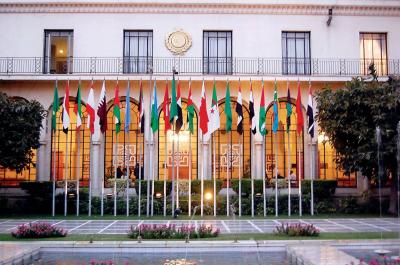The new year appears before the world, shy about what transpired in the departing year and lacking hope that it will bring anything new. It is enough to note that the renewal of the multilateral international system, or infusing energy into its veins, which was the focus of discussion in research centers, classrooms, newspaper articles, and media chats in the corners of the world, has suffered a severe blow due to recent events at the United Nations Security Council in New York. The Security Council has been paralyzed from fulfilling its role, allowing an occupier state to carry out mass killings and target vast populations that are protected under international law; this signifies the end of the era of relying on international law or respecting the principles of the United Nations Charter. This has two main consequences: firstly, that the states supporting the international order have abandoned it and its fundamentals, thereby dismantling it, and secondly, that everyone must recognize the need to seek the sources of strength that have become a means to resolve conflicts, and not to believe—rather to be wary—of what the supposed great powers that are guardians of this system tell or promise them. Thus, it is wise to prepare for years, even decades, of chaos, security disruption, border violations, infringements on state sovereignty, war crimes, crimes against humanity, deception, official lies, and a return to policies of racial separation and religious intolerance, even a return to old-style colonialism dressed in new robes that cover its stains and afflictions.
I could almost say that what was achieved in the twentieth century regarding peoples' right to self-determination, the decolonization process, the independence of states, and decades of economic and social development, along with efforts to support the United Nations and its Charter and institutions to achieve positive international relations based on agreed frameworks of international law principles and agreements… all of this seems to be swept away today, as the countries that claimed to care for a free democratic world reliant on a series of arrangements that establish a "righteous international order" have revealed a substance afflicted with double standards, discrimination, arrogance of power, racial discrimination, and contempt for others, who are states and peoples of the third world now referred to as the global south. This hints at a long-term confrontation that may not leave anything behind, and how could it be otherwise when folly has become the master of the situation in shaping policies, protecting crimes, and dispensing with the international system.
If we return to our region, which is called the Middle East, and should rather be referred to as "the Arab World and others," we have witnessed in recent years since 2011 political practices that came from across the Atlantic labeled as "creative chaos," resulting in the ongoing realities we see in Libya, Sudan, Yemen, Syria, and Lebanon, alongside the destruction of Iraq; this is something Tunisia is still struggling to rid itself of. Only Egypt managed to escape its repercussions early on, although attempts are still ongoing, taking different forms—some on land, some at sea, and some in the river, among others. One of the primary objectives of the "creative chaos" policies was to remove the Palestinian cause from the list of priority issues, then to completely displace it under the pretext that it is a remnant of the past and an obstacle to the future.
However, things soon became completely revealed when Israeli policies, deeply submerged in violence, racism, and greed for land appropriation, emerged. There has been a blatant disregard for the fate of the Arab individual under occupation, and for the Arab individual in general, alongside the discrimination and humiliation directed against him, policies that logically would intensify unrest and solidify conflict while paving the way for an explosion to occur. This indeed happened, and the world witnessed it in astonishment on the morning of October 7 of last year.
Now, the future prospects of developments in this vital issue are subject to examination, and 2024 may be the timeframe that allows for the exchange of opinions on what should be done... Firstly, it is impossible to accept the Israeli policies prior to October 7 (in the West Bank, East Jerusalem, and Gaza), which entrench occupation through bloodshed and deception, among other means. Secondly, it is crucial to seriously move towards establishing a genuine Palestinian state and to reject the random repetition of this objective (lip service), transforming it into effective policies. One may ask how this can be achieved, and I say that we should start with what is possible and within our immediate and early reach in the new year, which is to unite the Arab ranks (as much as possible in terms of numbers and agreement on policy content), and the condition for success here is to be wary of falling into the traps of splendid Western smiles and their insincere promises along with policies capable of sowing discord.
It is also possible for us to assist our brothers in Palestine in consolidating their ranks and reforming their relationships among themselves, reducing their vulnerability to infiltration, and coming up with an initiative (within the framework of the Arab initiative of 2002) that they all commit to, and that the Arab League countries also commit to as an Arab stance to be reaffirmed and unified with a commitment to not stray from it again, particularly in light of the extreme racial posture of the Israeli government. These are possible beginnings, complemented by linking the development of Arab relations with Israel to the necessity for the latter to stop officially and practically settling new areas, refrain from demolishing Palestinian villages and buildings, expelling their inhabitants, and desecrating Al-Aqsa Mosque. Such Arab stances are possible and can create a breakthrough in the reality shaped by the Israeli policies supported by the West.
As for the Israeli side, despite the continuous calls from the Israeli peace movement to come out publicly rejecting their government's current policies and its inhumane practices in Gaza against its civilian population, we have not heard a voice from them. It goes without saying that an Israeli government like the current one under Benjamin Netanyahu cannot be an acceptable negotiator for just peace, just as a weak, divided Palestinian negotiator will not be an effective negotiator for presenting the rights of the Palestinian people. This year may at least lead to a movement toward a better Arab position and a healthier Palestinian situation, while it may also witness a radical change in the Israeli government, but that alone will not be sufficient to achieve what we hope for in terms of resolution.




